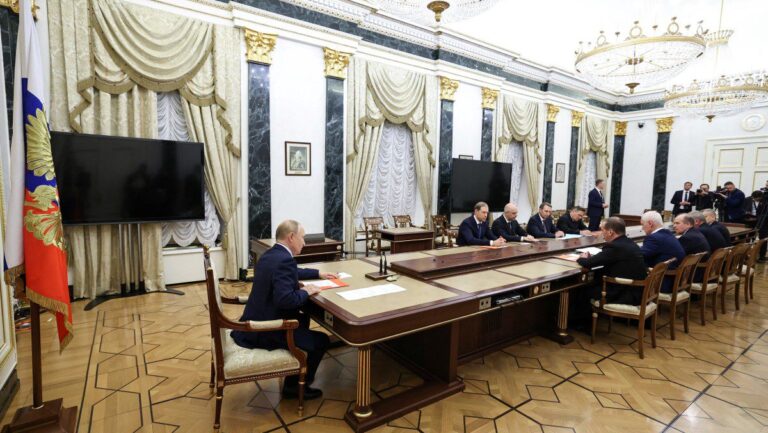A number of member states raised objections towards the EU’s tenth sanctions package on Wednesday, February 22nd. The negotiations resume today, as the Commission deals with immense pressure to get the package approved by Friday, which marks the one-year anniversary of Russia’s invasion.
As The European Conservative wrote before, the new package contains proposals to further sanction financial institutions, infrastructure companies, and some 130 people and entities close to Russian leadership, as well as ban trade on rubber, asphalt, and electronic components.
However, the most controversial part of the deal was the Commission’s proposal to impose penalties on countries who fail to “report the whereabouts of Russian state assets,” Politico reported. The measure would have been part of the EU’s wider efforts to tackle sanction evasion, in which Moscow appears to be more skilled than Brussels thought. But after meeting widespread resistance from member states, including Austria, Germany, Belgium, France, Italy, Latvia, Malta, Portugal, and the Czech Republic, the Commission was forced to abandon the idea altogether.
Nonetheless, different ways to enforce the EU sanctions remain to be pursued. “We will have to do something to prevent circumvention,” said Josep Borrell, the EU’s High Representative for Foreign Affairs, “because it is not enough to proclaim sanctions, we have to implement them—and that requires imposing a lot of discipline on a lot of people.”
We propose new measures to prevent circumvention.⁰
— Ursula von der Leyen (@vonderleyen) February 15, 2023
Our special envoy David O’Sullivan is reaching out to third countries, to address circumvention of sanctions.
And next week, we will organise a Sanctions Coordinators Forum to strengthen enforcement.
While the package did not reach its final form over the course of Wednesday, the lawmakers did manage to make progress in certain key areas. Hungary, for instance, has finally agreed to give up demands to remove four names from the list of individuals to be sanctioned in exchange for keeping the renewal period of existing sanctions at six months instead of the proposed twelve. The EU’s initial plan to extend the renewal period would have considerably limited the member states’ ability to negotiate the sanctions by using their veto power.
The joint Polish and Baltic initiative to include the Russian nuclear industry in the package also failed, “mostly because of categorical opposition by Hungary,” three unnamed diplomats told Politico. Budapest may be the most vocal opponent of nuclear sanctions, but several other EU members rely on Russian uranium to fuel their power plants as well, most of them planning to replace it with other suppliers. This is why the Commission agreed to include a clause to allow members to continue purchasing fuel as long as necessary.
Hungary’s case, however, is slightly different, as it not only relies on Russian fuel rods, but it has been in contract since before the war with Moscow’s state-owned company Rosatom which is constructing two new reactors at the Hungarian Paks power plant. Sanctioning Russia’s entire nuclear industry, including Rosatom, therefore, could hurt Hungary in more ways than other EU members.





